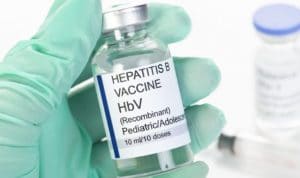
A HepB vaccine is usually administered after birth. So most adults already have an immune to the disease if they got the vaccination. If you haven’t gotten the vaccine, then you should.
The World Health Organization (WHO) strongly advises all non-immune people who plan to travel to countries or areas with moderate to high risk of infection, to get vaccinated.
The CDC also recommends the following class of people to get the HepB vaccine.
- Sex partners of someone positive with the virus. The person could just be a carrier so be careful.
- Sexual partners who are not in a long term monogamous relationship.
- Persons who are seeking treatment for an STD.
- Gay men.
- Injection drug users
- Household contacts of an HBsAg-positive person.
- Residents and staff of mentally and developmentally challenged care givers
- Health care or public safety people at risk for fluid contamination.
- Hemodialysis patients and home dialysis patients.
- Diabetic patients under 60 years old with a doctor’s recommendation.
- Travellers of risky areas.
- Someone with a HepC infection.
- Someone with chronic liver disease
- A person with HIV
- People in Jail
Routine Hepatitis B vaccination schedule for an adult
Below is the routine vaccination schedule for an adult seeking the vaccine.
There are two schedules depending on the dose count
- 2-dose series Heplisav-B at least 4 weeks apart
- 3-dose series Engerix-B or Recombivax HB with dose as follows
- First Dose should be taken immediately
- Dose two, four weeks later.
- Dose three six months later
- Or 3-dose series HepA-HepB at the same above 3 dose schedule.
Some questions and answers about the HepB vaccine for adults
- How long does HBV survive outside the body?
HBV the virus that causes HepB can last up to 7 days outside the body.
- What are the symptoms of an HBV infection?
- Fever
- Fatigue
- Loss of appetite
- Nausea,
- Vomiting,
- Abdominal pain,
- Dark urine,
- Clay-colored stool,
- Joint pain, and
- Jaundice.
- How serious is a HBV infection?
The most serious complication of HBV is Cirrhosis or end-stage liver disease.
- How likely is HepB infection to become chronic?
About 90% of infants and 25%–50% of children 1–5 years will remain chronically sick with HBV. However 95% of adults recover completely.
- When does an HBV reactivation occur?
A reactivation occurs when someone who had HBV before and was cured, gets sick again. A reactivation is very serious and can lead to death.